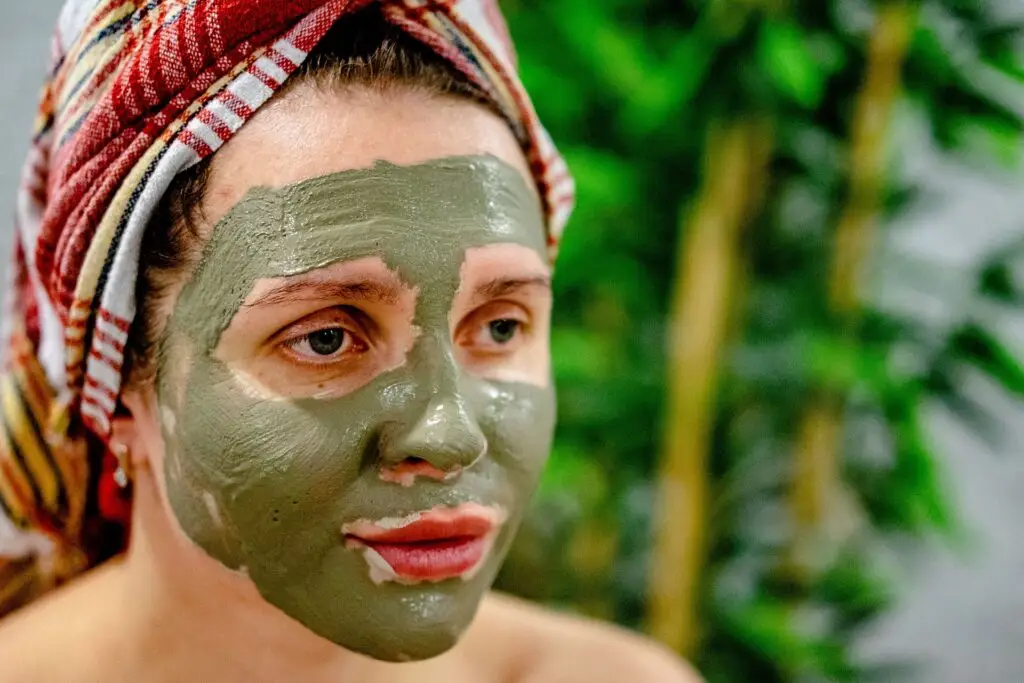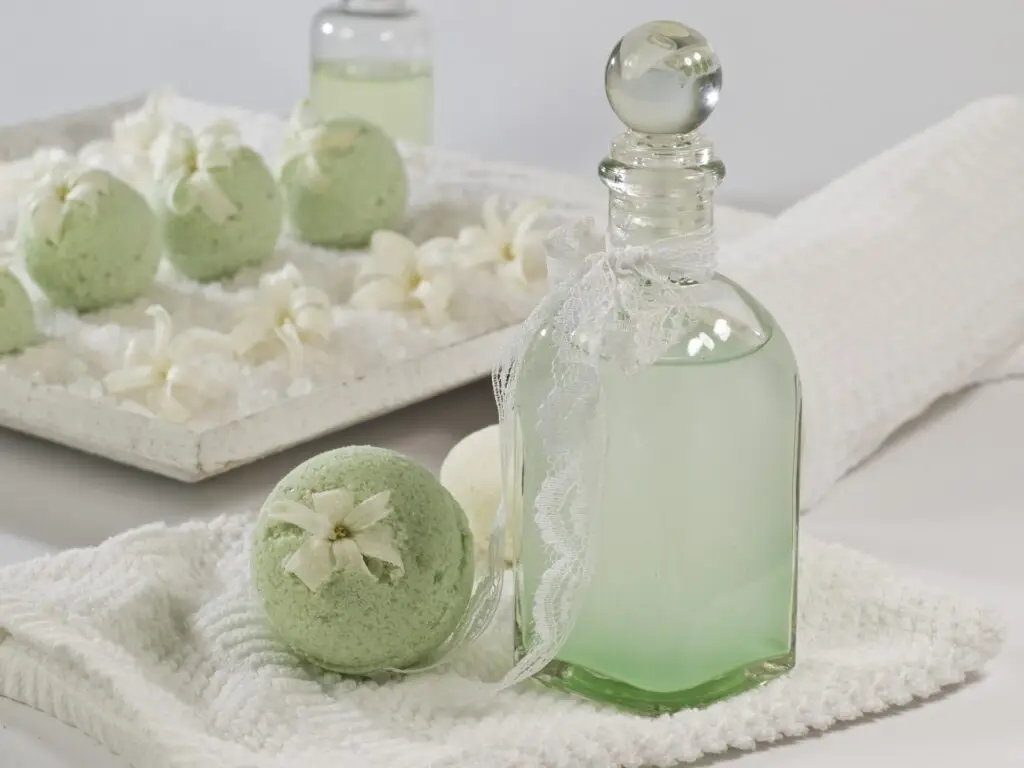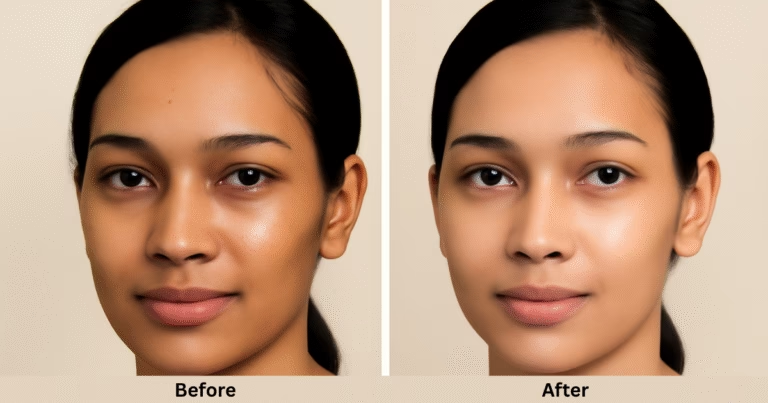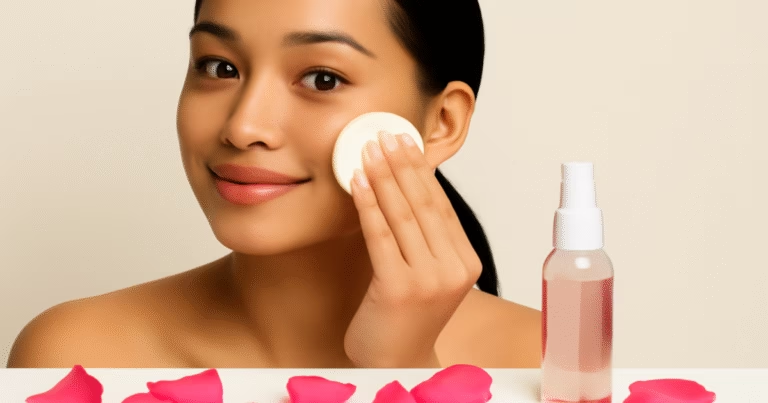Ever stood in the skincare aisle, overwhelmed by choices and wondering, “Are natural skincare products really better for me?” You’re not alone. I’ve been there too, navigating through labels and ingredients that sound more like a chemistry exam than a beauty routine.
Let me take you on a journey through the world of natural skincare—sharing insights, personal experiences, and a sprinkle of Ayurvedic wisdom. Together, we’ll explore why embracing nature might just be the best thing you do for your skin.
Table of Contents
Key Takeaways
- Gentle on Skin: Natural products often contain fewer irritants, making them suitable for sensitive skin.
- Nutrient-Rich: Ingredients like aloe vera and green tea are packed with vitamins and antioxidants.
- Eco-Friendly: Choosing natural supports sustainable practices and reduces environmental impact.
- Holistic Health: Natural scents and ingredients can uplift mood and overall well-being.
- Ayurvedic Alignment: Traditional herbs like neem and turmeric offer time-tested skin benefits.
Embracing Nature in Skincare
Understanding Natural Skincare
Natural skincare revolves around products derived from nature—think plant extracts, essential oils, and minerals. Unlike synthetic counterparts, these products aim to nourish without harsh chemicals.
Common Natural Ingredients:
- Aloe Vera: Soothes and hydrates.
- Tea Tree Oil: Fights acne-causing bacteria.
- Shea Butter: Deeply moisturizes.
- Chamomile: Calms irritated skin.
Personal Tip: I once battled dry patches every winter. Switching to a shea butter-based moisturizer transformed my skin—no more flakiness!
7 Surprising Benefits of Natural Skincare Products
- Reduced Irritation: Fewer synthetic additives mean less chance of allergic reactions.
- Rich in Antioxidants: Combat free radicals and slow aging.
- Better for the Environment: Biodegradable ingredients and eco-friendly packaging.
- Supports Ethical Practices: Many brands avoid animal testing and source sustainably.
- Holistic Wellness: Natural scents can enhance mood and relaxation.
- Transparency: Easier to understand ingredient lists.
- Customizable: DIY options allow for personalized skincare solutions.
Why Natural Skincare is Better for Your Skin
Natural products often work in harmony with your skin’s biology. For instance, coconut oil not only moisturizes but also has antimicrobial properties, making it a dual-action ingredient.
Analogy: Think of your skin as a garden. Natural products are like organic compost, nourishing and enhancing growth without harmful chemicals.
The Journey to Clean Beauty — Why Switching to Natural Skincare Is a Game-Changer
Transitioning to natural skincare isn’t just a trend — it’s a lifestyle shift. And I’ll be honest, when I first made the switch, I was skeptical. But what I experienced was not just skin-deep; it transformed my overall well-being.
Let’s dive into the emotional, physical, and even Ayurvedic aspects of this journey.

Benefits of Switching to Natural Skincare Today
You know how our grandmothers had that radiant glow? They relied on turmeric masks, rosewater, and cold-pressed oils—not lab-formulated serums. There’s ancient wisdom here.
Here’s what I noticed after switching to natural skincare:
- Consistent Skin Tone: No more patchy dry spots or unexpected redness.
- Less Breakouts: My skin calmed down — especially after ditching alcohol-based toners.
- A Natural Glow: Without needing layers of makeup.
- Peace of Mind: Knowing I’m not putting petrochemicals on my skin.
Natural Skincare: What Happens When You Go Green?
Let’s break this into stages, kind of like a detox (because your skin will detox too).
| Week | What Happens | What to Expect |
|---|---|---|
| Week 1 | Detox Begins | Breakouts or mild irritation may occur as your skin purges toxins. Stay hydrated and patient. |
| Week 2 | Calming Phase | Redness reduces. Skin texture begins to improve. |
| Week 3 | Nourishment Kicks In | Natural oils and serums start showing real results — elasticity, glow, softness. |
| Week 4+ | Long-Term Balance | Skin feels balanced, resilient, and happier. You need fewer products now. |
Note: You might feel like your skin is getting worse before it gets better. That’s completely normal. Stick through it.
Natural Skincare Benefits You Didn’t Know About
Besides the visible glow and hydration, here are some unexpected perks of going natural:
- Hormone-Friendly: Avoiding endocrine disruptors like parabens can reduce hormonal acne and even improve PMS symptoms.
- Less Product Dependency: Natural skincare often supports your skin barrier, reducing the need for 10-step routines.
- Improved Sleep & Mood: Natural scents like lavender or sandalwood can be calming — a form of skin aromatherapy.
Personal Insight: I began using a lavender-infused night balm. Within a week, I wasn’t just waking up with better skin — I was sleeping better too.
Ayurvedic Insights into Natural Skincare
Ayurveda doesn’t just treat symptoms; it treats your prakriti (constitution). When it comes to skin, it focuses on balance — inside and out.
Here’s how Ayurveda maps natural skincare:
| Dosha | Skin Type | Ayurvedic Herbs | Natural Care Tips |
|---|---|---|---|
| Vata | Dry, rough, sensitive | Ashwagandha, sesame oil | Use hydrating, warming oils |
| Pitta | Sensitive, acne-prone | Neem, sandalwood, turmeric | Cooling herbs & soothing masks |
| Kapha | Oily, congested skin | Tulsi, manjistha, honey | Light exfoliation, detox herbs |
Ayurvedic Remedies:
- Kumkumadi Tailam: Traditional facial oil for radiance
- Multani Mitti + Rose Water: A cooling mask for Pitta skin
- Triphala: Taken internally for detox which shows up on your face
If you want deeper insight into Ayurvedic skincare rituals, check out this beautiful breakdown on Banyan Botanicals.
FAQ Section – People Also Asked
What are the benefits of natural skin care?
- Natural products are gentle, rich in nutrients, and often more compatible with sensitive skin. They also reduce long-term exposure to harmful chemicals.
Is natural skincare actually better?
- Yes, especially for those prone to allergies, hormonal acne, or chronic irritation. However, consistency is key—natural products take time to show full results.
What are the advantages of natural products?
- Safer ingredients, less pollution, transparency in sourcing, and often cruelty-free.
What are the benefits of herbal skincare products?
- Herbal formulations work with your skin’s natural rhythms. Think of tulsi (basil) for purifying or manjistha for brightening—these have been used for centuries in Ayurveda with great results.
Real Talk — Is Natural Skincare Worth It? (Spoiler: Absolutely.)
Now that we’ve unpacked the benefits, phases, and even Ayurvedic wisdom behind using natural skincare products, let’s dive into some final comparisons, actionable tips, and product recommendations that’ll make your clean beauty journey smooth and rewarding.

Why Natural Skincare Is Better for Your Skin (Vs. Chemical Skincare)
Let’s face it — the skincare aisle can be overwhelming. You’re stuck choosing between natural creams that smell like a garden and sleek chemical serums promising overnight miracles. But here’s the real difference:
| Feature | Natural Skincare | Chemical Skincare |
|---|---|---|
| Ingredients | Plant-based, food-grade, herbal | Synthetics, preservatives, petrochemicals |
| Skin Compatibility | High (especially for sensitive skin) | Can be harsh or reactive |
| Environmental Impact | Sustainable, eco-conscious | Often contributes to pollution |
| Long-Term Results | Gentle, gradual, lasting | Quick fixes, may cause long-term damage |
| Ayurveda Support | Yes — aligns with dosha-based care | No traditional or holistic approach |
Let’s Recap
- Natural skincare products are gentle, sustainable, and rooted in time-tested tradition.
- Switching to natural skincare is not just skin-deep — it affects your mood, sleep, and overall wellness.
- Ayurvedic herbs and oils offer customizable care based on your dosha, making it more effective.
- Yes, it takes patience. But the long-term payoff is radiant, balanced, and truly healthy skin.
Best Organic Skin Care Products to Try (Non-Promotional Suggestions)
These are ingredients and formulations, not brands — so you can DIY or shop local.
- Rosehip Oil – Natural source of vitamin A for skin regeneration
- Aloe Vera Gel – Cooling and healing, especially for Pitta skin
- Kumkumadi Tailam – Ayurvedic elixir for glowing skin
- Neem + Tulsi Cleanser – Perfect for oily/acne-prone skin
- Shea Butter Balm – Ideal for dry, cracked skin (Vata dosha)
- Manjistha Powder Mask – Helps with pigmentation and dullness
You don’t need a drawer full of products. Start simple.
Summary: Why This Matters (and Why It’s Personal)
I’ll leave you with this: skincare isn’t just about looking good in selfies. It’s about feeling connected — to your body, your environment, and your roots.
Switching to natural skincare products taught me patience. It taught me to listen to my skin, rather than silence it with quick-fix chemicals. My breakouts didn’t disappear overnight, but eventually, they stopped being the boss of me. My skin, finally, felt like mine.
So whether you’re just curious, already dabbling in rosewater and turmeric, or completely overhauling your skincare shelf — remember this:
🌱 Your skin deserves care, not control. And nature knows how to care — it always has.





